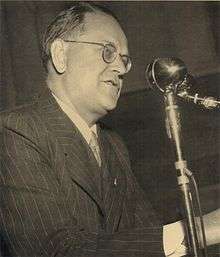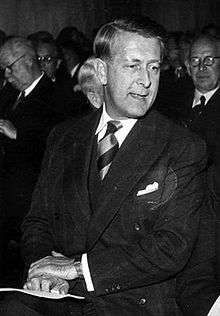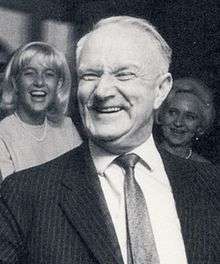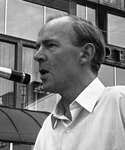1964 Swedish general election
General elections were held in Sweden on 20 September 1964.[1] The Swedish Social Democratic Party remained the largest party, winning 113 of the 233 seats in the Second Chamber of the Riksdag.[2] Tage Erlander's Social Democratic government was returned to power.
| |||||||||||||||||||||||||||||||||||||||||||||||||||||||||||||
All 233 seats to the Second Chamber of the Riksdag 117 seats were needed for a majority | |||||||||||||||||||||||||||||||||||||||||||||||||||||||||||||
|---|---|---|---|---|---|---|---|---|---|---|---|---|---|---|---|---|---|---|---|---|---|---|---|---|---|---|---|---|---|---|---|---|---|---|---|---|---|---|---|---|---|---|---|---|---|---|---|---|---|---|---|---|---|---|---|---|---|---|---|---|---|
| |||||||||||||||||||||||||||||||||||||||||||||||||||||||||||||
| |||||||||||||||||||||||||||||||||||||||||||||||||||||||||||||
Results
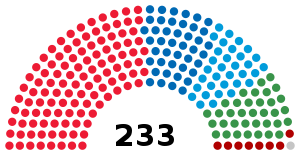 | ||||||
| Party | Votes | % | Seats | +/– | ||
|---|---|---|---|---|---|---|
| Swedish Social Democratic Party | 2,006,923 | 47.3 | 113 | –1 | ||
| People's Party | 720,733 | 17.0 | 43 | +3 | ||
| Rightist Party | 582,609 | 13.7 | 33 | –6 | ||
| Centre Party | 559,632 | 13.2 | 35 | +1 | ||
| Communist Party of Sweden | 221,746 | 5.2 | 8 | +3 | ||
| Christian Democratic Unity | 75,389 | 1.8 | 0 | New | ||
| Civic Unity[a] | 64,807 | 1.5 | 1 | New | ||
| Middle Parties[b] | 13,557 | 0.3 | 0 | New | ||
| Other parties | 384 | 0.0 | 0 | 0 | ||
| Invalid/blank votes | 27,815 | – | – | – | ||
| Total | 4,273,595 | 100 | 233 | +1 | ||
| Registered voters/turnout | 5,095,850 | 83.9 | – | – | ||
| Source: Nohlen & Stöver | ||||||
a Civic Unity was a joint list of the three right-wing parties in Malmö. One of its elected candidates was a member of the Centre Party, but sat as an independent.[2]
b The Middle Parties was a joint list of the Centre Party and People's Party that contested some constituencies.[3]
gollark: Then it says `output char: a` whenever it outputs a character.
gollark: It says `input char: ` and you type in the char.
gollark: stdin, ish.
gollark: You found somewhere which lets you run arbitrary nodecode™ *and* use npm packages?
gollark: Sure you can, it's easy.
References
- Nohlen, D & Stöver, P (2010) Elections in Europe: A data handbook, p1858 ISBN 978-3-8329-5609-7
- Nohlen & Stöver, p1872
- Nohlen & Stöver, p1861
This article is issued from Wikipedia. The text is licensed under Creative Commons - Attribution - Sharealike. Additional terms may apply for the media files.
